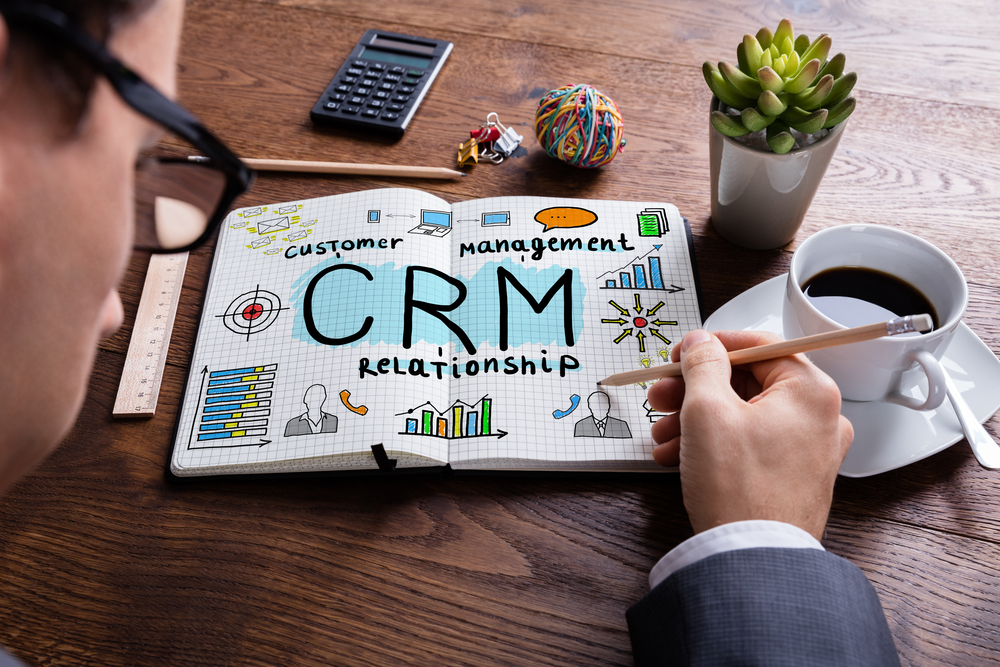A CRM enables Realtors to maintain detailed records of client interactions, preferences, and feedback, thus providing a personalized experience to each client. Moreover, CRM tools can automate communication, follow-up schedules, and marketing campaigns, ensuring no opportunity is missed. In essence, a good CRM system acts as a central hub for all client-related activities, fostering efficient time management and more effective sales strategies.
A REALTOR® is a member of the National Association of REALTORS®. In this article we use the terms realtor or realtors without the ® mark to accommodate common search terms. The author, Scott Phillips, and Realoq are members of the National Association of REALTORS®.
Let’s take a closer look at 10 CRM platforms that stand out for their affordability and features suited to the needs of Realtors:
Zoho CRM
Zoho CRM stands out for its flexibility and customization options, allowing Realtors to tailor the system to their specific needs. The free version offers basic CRM functionalities, perfect for those just starting out. For more advanced features, their affordable paid plans provide excellent value.
HubSpot CRM
HubSpot CRM is celebrated for its no-cost entry point, making it an ideal choice for Realtors mindful of budget constraints. The platform excels in user experience and integrates seamlessly with a suite of marketing tools, enhancing lead generation and client engagement efforts.
Insightly
This CRM is a great fit for Realtors seeking to combine sales and project management. Insightly’s user-friendly interface and affordable pricing make it a good choice for managing client relationships and tracking the progress of different real estate projects.
Pipedrive
Designed with sales teams in mind, Pipedrive focuses on streamlining the sales pipeline. Realtors will appreciate its intuitive design, which makes tracking deals and client communication straightforward and effective.
LionDesk
Specifically created for the real estate sector, LionDesk offers features like video emailing and texting, which can greatly enhance client communication. It’s a budget-friendly choice for Realtors looking to add a personal touch to their client interactions.
Follow Up Boss
This platform is adept at simplifying lead tracking and follow-ups. Ideal for Realtors who handle a high volume of leads, Follow Up Boss helps in organizing and prioritizing client interactions effectively.
Freshsales
As part of the Freshworks suite, Freshsales stands out for its simplicity and clean interface. Its free tier is a great starting point for Realtors, with options to scale up as business grows.
Wise Agent
Tailored for the real estate market, Wise Agent helps Realtors manage contacts and automate marketing. Its affordability and comprehensive feature set make it a smart choice for Realtors looking to enhance client relations.
IXACT Contact
This CRM is particularly adept at nurturing leads and keeping in touch with past clients. IXACT Contact’s user-friendly approach and specific real estate focus make it a valuable tool for Realtors.
Realvolve
Known for its robust feature set and workflow automation, Realvolve is ideal for Realtors seeking to streamline their operations. It helps in maintaining efficiency and organization, crucial for managing numerous clients.
Getting Started with a CRM: A Step-by-Step Guide

Embarking on the journey of integrating a CRM into your real estate business can be transformative. Here’s how to get started:
- Identify Your Needs: Determine what you want from a CRM. Are you looking for lead management, client relationship nurturing, transaction tracking, or all of the above? Understand your daily workflow to identify which features will be most beneficial.
- Research and Select a CRM: Compare the CRM platforms discussed earlier. Consider factors like budget, scalability, user-friendliness, and specific features like integration capabilities, mobile access, and automation.
- Set Up and Customize: Once you’ve chosen a CRM, set it up to suit your real estate business. Customize fields and pipelines to reflect your sales process. Many CRMs offer templates specifically designed for real estate.
- Import Existing Data: Migrate your current data into your new CRM. This may include contact information, lead details, transaction histories, and notes. Ensure data accuracy during this process to avoid future complications.
- Integrate with Other Tools: Connect your CRM with other tools you use, such as email platforms, social media, and marketing tools. Integration streamlines your workflow and provides a more cohesive user experience.
- Train Yourself and Your Team: Learn how to use the CRM. Take advantage of training resources provided by the CRM vendor. If you have a team, ensure everyone is trained and comfortable with the new system.
- Start Using the CRM Regularly: Incorporate the CRM into your daily routine. Use it to track leads, manage communications, schedule tasks, and monitor your sales pipeline.
- Review and Adjust: Regularly review how the CRM is working for you. Gather feedback from your team if applicable. Make adjustments as needed to ensure the CRM continues to meet your evolving business needs.
Frequently Asked Questions About Realtor CRM Solutions

How long does it typically take to implement a CRM in a real estate business?
The time to implement a CRM can vary depending on the complexity of the system and the size of your data. Generally, it can take anywhere from a few days to several weeks to fully integrate a CRM into your daily operations.
Can I access my CRM on different devices?
Most modern CRMs offer cloud-based solutions, allowing you to access your CRM on different devices including smartphones, tablets, and computers. This ensures that you can stay connected to your business from anywhere.
Is it worth investing in a CRM for a small real estate business?
Absolutely. A CRM can be particularly beneficial for small businesses by helping to organize client information, streamline processes, and improve efficiency, which are crucial for growth and competitiveness.
How secure is my data in a CRM?
Reputable CRM providers take data security very seriously. They typically employ advanced security measures like encryption, regular backups, and compliance with privacy laws. However, it’s always a good idea to review a provider’s security policy for specifics.
Can a CRM integrate with social media platforms?
Many CRMs offer integration with social media platforms. This allows you to track client interactions on these platforms and include this information as part of your client relationship management strategies.
Get Started with Your Realtor CRM
Investing in a CRM system is not just a convenience; it’s a strategic business decision for Realtors. The right CRM can revolutionize how you interact with clients, manage your daily tasks, and ultimately, close deals. Each of the CRMs listed above offers unique features and benefits, catering to various needs and budgets in the real estate industry. Selecting the right one depends on the specific requirements, size, and goals of your real estate business.
At Realoq, we are committed to providing a platform that
empowers agents to succeed without the burden of upfront fees.


